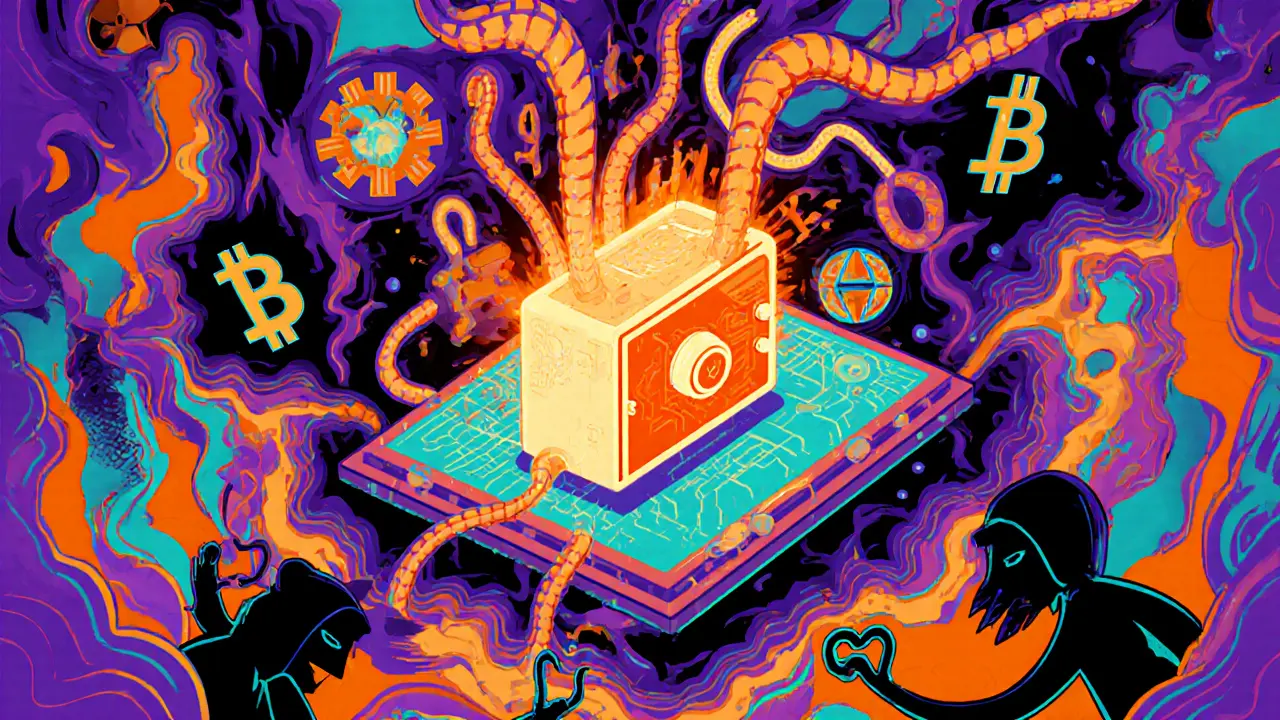Crypto Security: Protect Your Assets from Scams, Hacks, and Regulations
When it comes to crypto security, the practices and systems used to protect digital assets from theft, fraud, and regulatory overreach. Also known as blockchain security, it's not just about keeping your private keys safe—it's about knowing who’s watching, where the traps are, and how to stay ahead of the law. If you’re holding Bitcoin, Ethereum, or any token, you’re not just investing in tech—you’re navigating a minefield of scams, sanctions, and shifting rules.
Crypto wallet security, the methods used to safeguard digital asset access through hardware devices, multisignature setups, and secure backup practices is the first line of defense. Most losses don’t come from hacking—they come from users storing keys on phones, sharing seed phrases, or trusting fake airdrops. Look at the ELCASH and VATAN tokens: both had zero real use, yet people lost money chasing hype. Meanwhile, tools like cold storage and multisig wallets are the quiet heroes that keep real money safe. The MetaSoccer and HashLand airdrops? They’re not giveaways—they’re tests of whether you know how to verify a project before connecting your wallet.
AML crypto EU, the set of anti-money laundering rules forcing crypto businesses to track users, report transactions, and verify identities under MiCA and AMLR is changing how you interact with exchanges. If you’re in the EU, you can’t just swap tokens anymore without ID checks. The same goes for OFAC cryptocurrency sanctions, U.S. government rules blocking transactions with wallets tied to criminals, terrorists, or sanctioned countries like Myanmar. If you trade on Koinde or JulSwap, you might be unknowingly violating these rules. And if you’re in Qatar or India, you’re not banned from crypto—you’re just being pushed into gray zones where tokenized real estate is legal but Bitcoin isn’t.
Regulations like MiCA, FinTech Law in Mexico, and India’s tax rules aren’t stopping crypto—they’re cleaning house. The projects that survive are the ones built on transparency, not TikTok hype. Janro The Rat and LakeViewMeta? They vanished because no one could verify who was behind them. Meanwhile, Uniswap v3 and Saros Finance thrive because they play by the rules, even if those rules are still being written.
There’s no magic bullet for crypto security. It’s not a single app or a fancy password. It’s a habit: double-check every airdrop, never share your seed phrase, use hardware wallets for anything over $100, and assume every free token is a trap. The posts below show you exactly how the smartest users stay safe—whether they’re avoiding Myanmar scams, navigating EU compliance, or spotting dead tokens before they lose 99.9% of their value. You don’t need to be a hacker to protect your crypto. You just need to know what to look for.
Understanding Different Types of Crypto Wallets: Hot, Cold, and Hardware Explained
Learn the differences between hot, cold, and hardware crypto wallets. Discover which type is best for trading, holding, or beginners - and how to avoid common security mistakes.
